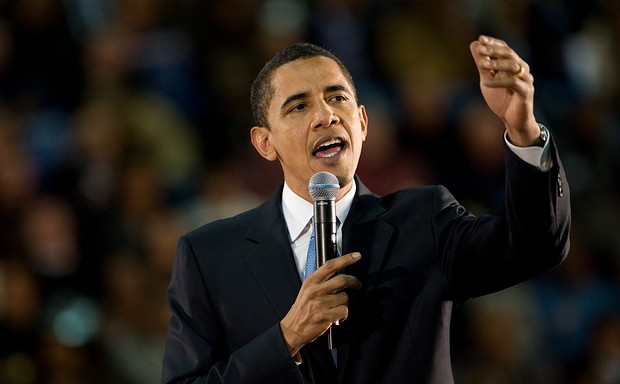Throughout his presidency, and especially during 2014, President Obama has made a concerted effort to connect to young voters through nontraditional means. He has made appearances on many TV shows like The Colbert Report and Jimmy Fallon. He has been in many YouTube videos, like a recent interview with Hank Green, Bethany Mota, and GloZell Green or his BuzzFeed original video. While many of these appearances and media outreaches have traditionally been to connect to younger voters and to promote signing up for healthcare, an ancillary benefit that may arise is a roadblock for Republicans in 2016. By using newer forms of media, President Obama has created a precedent by which future presidents and presidential candidates will feel obligated to abide, a precedent with which Republicans are currently quite inexperienced.
Obama’s outreach through untraditional forms of media most recently took place in the form of a BuzzFeed exclusive interview and original video. BuzzFeed is a relatively new website, but one that has taken over the Internet, as Vox noted via New York Times descriptions over time. BuzzFeed runs the gamut from breaking news to cat videos to Oscar coverage to powerful pieces about cancer. However, by gracing BuzzFeed News with his presence, Obama immediately raises the credibility of BuzzFeed as an organization and as a journalistic force. Regardless of the fact that it can help one learn how to make Harry Potter cocktails, BuzzFeed now has the sway to try to gain exclusive interviews with presidential candidates, a reality that has meaningful consequences leading up to the 2016 election.
Obama inadvertently made it harder for the GOP to steal away some share of the younger vote come 2016. Interviews with BuzzFeed or appearances on late night TV shows are things with which Democrats have experience. By Obama giving credence to organizations like BuzzFeed, Vox or even YouTube channels, he infuses them with a fresh viewership and enables them to pursue interviews with future candidates and politicians. Last election cycle, Obama went on the Daily Show, while Mitt Romney did not make an appearance. However, since Obama has recently made appearances on the Colbert Report and BuzzFeed Video, Republican presidential candidates will be hard pressed to avoid platforms like these in the future. Vox, a wonky yet informative news website, has a liberal bent, which in the past would probably have deterred Republicans from sitting down to an interview with them. But now, since Obama has boosted their credibility and relevance, Vox has all the more reason to expect potential GOP frontrunners and the eventual nominee to sit down with them.
As the growing political clout of young voters is realized, platforms like BuzzFeed, Between Two Ferns and Last Week Tonight with Jon Oliver become a valuable resource. Already Hilary Clinton, while prevaricating on whether she runs for President, has appeared on the Colbert Report. Republicans have very little experience with capitalizing on new media and will probably look bad if they attempt to win over younger voters by appearing on the same shows Democrats do. The Democratic nominee will certainly have standing invitations from the Daily Show, Nightly Show and Jon Oliver, and if they choose to accept, which they most likely will, they will certainly be displayed in a positive manner with plenty of support provided. The Republican nominee will also have standing invitations, but if they accept, they will not have the same treatment as the Democratic nominee would and would possibly be relentlessly interviewed in a way that showcases their weaknesses and shortcomings. Additionally, if BuzzFeed News or Vox want to interview the GOP nominee for president, the nominee will feel more pressure to accept the invitation, thanks to Obama’s new precedent. The websites would probably grill them about relevant social and economic issues like marriage equality or women’s rights, issues that the websites post about all the time, and the nominee would certainly be painted in a negative light. Still, BuzzFeed or Vox would have to balance asking the tough questions with outright mockery as to avoid being ostracized from future candidates, but, in a respectful way, the nominee would likely be forced to discuss certain aspects of their platform with which a younger audience would likely disagree. Yet, despite these glaring disadvantages and due to Obama’s recent, innocuous push to appear on these platforms, Republican nominees will feel the additional pressure to make their appearances, if not just to look more presidential and to fill the void of expectation left by President Obama.
In inadvertently setting this precedent and giving journalistic credence to organizations associated with a younger demographic, Obama made the fight over younger voters that much harder for Republicans to win. Republican candidates usually avoid these means of communication and advertising, but more powerful, modern news outlets will push hard for the candidates to meet with them. The GOP’s lack of experience in this frontier coupled with the gulf of ideology they would have to overcome when confronting this newer form of media will likely help the Democrats during 2016.
